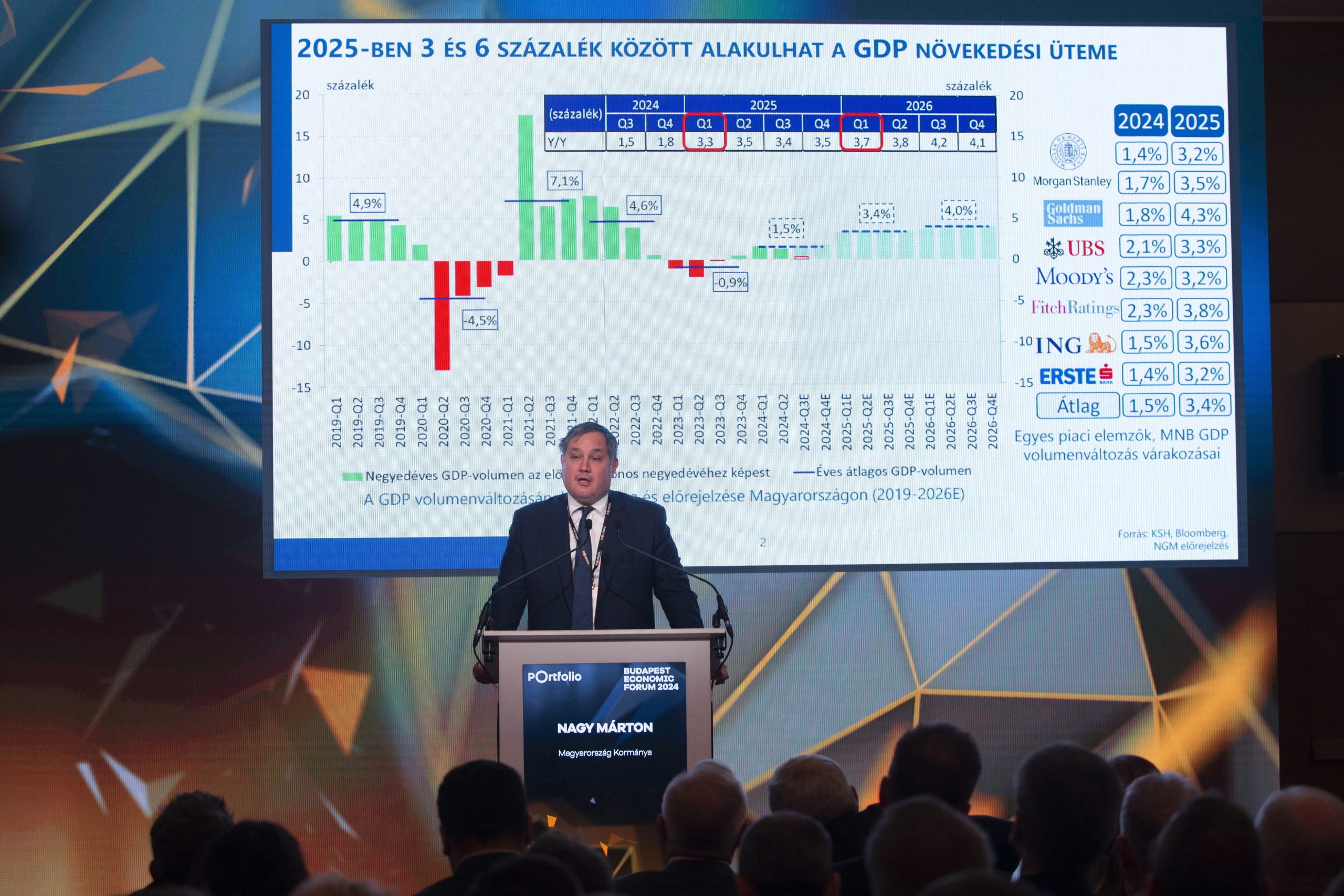
In September, inflation was held back significantly by fuel prices.Continue reading

“We are going through a difficult period, but there are more and more positive signs that the Hungarian economy has reached a turning point,” wrote Minister for National Economy Márton Nagy in a recent analysis. He recalled that the government had earlier pointed out that the Hungarian economy’s performance was weaker in the third quarter, mainly due to a weakening industrial sector.
GDP contracted by 0.7 percent in the third quarter of 2024, compared to the previous year and by 0.7 percent compared to the previous quarter, the Minister said, citing the latest data from the Hungarian Central Statistical Office (KSH). The weak performance is due to the decline in construction and agriculture, but most of all to the weak performance of industry, which is linked to the prolonged crisis in the German economy. Minister Nagy pointed out that
every day there is negative news about the tragic state of the German automotive industry, which has a strong impact on the Hungarian car and battery industry.”
This was only partly offset by the positive activity in the logistics, tourism, info-communications, and financial sectors.
Nagy pointed out that although the recent period had been difficult, the Hungarian economy seemed to have reached a turning point. Employment is high, close to full employment, with around 4.7 million people working, while the number of registered jobseekers is at a low point. Earnings are growing at a nominal rate of 14 percent. Real wages have been rising steadily for a year now, up 9.4 percent in August compared to last year. Inflation has been kept low by the government, with the rate at three percent in September, he recalled.
The Minister reiterated that the government’s goal is for the Hungarian economy to achieve economic growth above three percent in 2025, based on economic neutrality.
In order to pull up and strengthen the pace of economic growth into this growth band, the government has drawn up a New Economic Policy Action Plan consisting of 21 measures, that will inject a significant amount of money into the Hungarian economy.
As for the content of the action plan, the increase in purchasing power of incomes through the workers’ loan, the increase in the minimum wage, and the doubling of family tax allowance could give a new boost to consumption growth. According to Nagy, affordable housing measures such as the launch of the rural home renovation program or the creation of a housing-use scheme for pension savings, as well as the dormitory building program, could boost the housing market, contributing to the performance of the construction industry. The Demján Sándor Program will provide loans, capital, and subsidies to stimulate improvements in SME productivity and increase domestic investment.
The Minister said that the action plan would help the Hungarian economy to return to dynamic growth next year.
A big jump in economic output is expected in the third quarter of 2025.
He added that if the German economy finally shifts into higher gear, the Hungarian economy could recover faster and growth could jump to an even higher level.
In light of all this, Nagy said, the economic policy question arises as to whether Hungary’s high dependence on the German economy is beneficial for Hungary, and the answer to this question is economic neutrality. In his view, there is a clear need to reduce dependence and diversify, so in addition to the West, Hungary’s economic relations with the East, which is currently showing much higher growth, should also be strengthened.
Via MTI, Featured image: MTI/Kocsis Zoltán